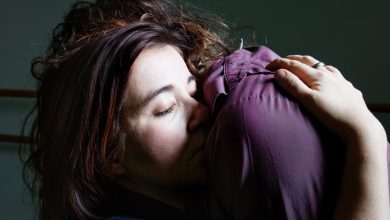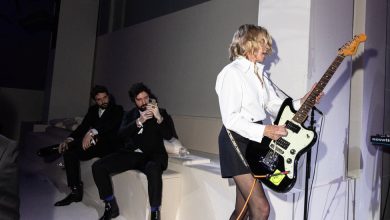Why ‘Uncle Vanya’ Is the Play for Our Anxious Era

IN WATCHING MIXED-BREED dogs play, I’ve often thought that mutts are more dog than the purest purebred. They’re the essence of caninity, all mud, turf and wet fur. So, too, with dramatic works: Some are purebred — think of William Shakespeare’s “The Tempest” (1611) or Edward Albee’s “Who’s Afraid of Virginia Woolf” (1962) — while others are mad rambles, off leash and messy. This brings me to Anton Chekhov’s “Uncle Vanya” (1897), a singularly psychologically destabilizing piece of theater that’s now being seen anew as a study of post-Covid paralysis, not to mention the existential dread of watching your life slip away by the spoonful. Although first produced in Moscow in 1899, it feels just like our present American age, when nobody hears anybody else because listening hurts too much; when the most comforting activity imaginable is a long, solitary walk followed by an even longer interlude of silence. This is a drama about being driven insane by the sound of other people’s desires, complaints and aspirations when you’re already being tortured by your own. The pandemic and the boorish political and public discourse that followed drove us inward, unable to fight back, going nuts like poor Vanya.
Plotwise, it’s deceptive in its simplicity. A family’s marooned at its rural estate, where culture is only a rumor. A visiting popinjay academic from the city arrives accompanied by his second wife, both sowing chaos. They remain blind to their banal savagery and are even self-righteous about it, as when the narcissistic Professor Serebryakov says, “You live a purposeful life, you think, you study, you lecture, your colleagues respect you, it all seems to have meaning — and then suddenly you’re thrown into a darkened cellar, with stupid people, listening to their horrible conversation.” In fact, his academic life has long been irrelevant, and the stupid people he’s referring to are family members he relies on for money. Now he’s set up camp here, where the mother of his late wife, his only daughter and his put-upon brother-in-law (the titular uncle) all reside — the relatives he’s sponged off for years.
For Uncle Vanya, this situation becomes intolerable, especially after Serebryakov insists that the property be sold and the profits set aside for his comfort. Equally unbearable: the professor’s new wife, Yelena, a detached beauty years his junior who’s driving Vanya and the alcoholic Dr. Astrov, another visitor, batty with lust. Humiliation is everywhere. You could watch the play and mistake it for a genteel, comic trip down a quaint country road of the past … and you’d be missing the entire point, which is that most of us are too civilized to survive the struggle with those to whom we’re inextricably tied.

Katherine Parkinson (left) as Sonya and Rupert Everett as Vanya in a 2019 production of “Uncle Vanya,” adapted by David Hare and directed by Everett, at the Theatre Royal in Bath, England.Credit…Nobby Clark/Popperfoto via Getty Images
PERHAPS THAT’S WHY many theater artists have returned to “Uncle Vanya” recently. In April, the latest revival will open at New York’s Lincoln Center Theater, a new version by Heidi Schreck directed by Lila Neugebauer, featuring Alison Pill, Alfred Molina, William Jackson Harper and Steve Carell, all of whom possess the intelligence and suppressed anger of an entire army of riven Chekhov characters. Also on the American horizon is Andrew Scott’s one-man “Vanya” from London, in which he — exhaustingly — does all of the parts. Adapted by Simon Stephens and directed by Sam Yates, that choice amplifies how important actual clumps of actors are to Chekhov, and how much is lost by their absence: Scott creates a mood of almost farcelike mania, which is a magic trick, yes, but the threads of sorrow that permeate the text are blunted. Although you don’t need a lot of space: Last summer, there was an intimate, candlelit Manhattan production with the director-actor David Cromer as a depressive Vanya padding about a real apartment borrowed for the purpose (before the show moved to a larger event space).



